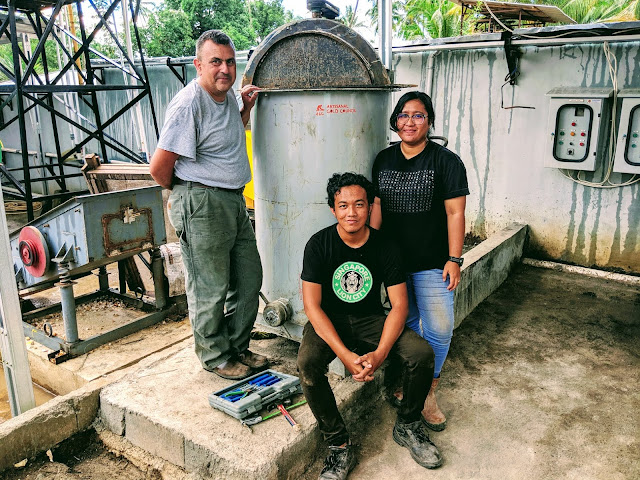In celebration of women artisanal gold miners
Women’s contribution and priorities in artisanal and small
scale gold mining are often overlooked. This is in part due to the informal
nature of the sector, existing inequitable gender norms and in part because
mining continues to be understood in many places as a sector of the economy
requiring stereotypical male characteristics. Yet women form an important part
of the work force in the sector, playing a wide variety of roles. As in many
sectors, women earn less for their work when compared with men.
The artisanal gold mining sector offers the opportunity to narrow existing gender gaps,
but also runs the risk of widening them, if this is not a priority. Globally,
the world economic forum estimates that it will take 117 years to achieve
gender parity. AGC is committed to
accelerating the closing of the gender gap in ASGM. Gender equity is not a
by-product of our work, but rather an explicit target. Women and men are both
integral for the development of a responsible artisanal gold sector that
contributes to the sustainable development of their communities.
When women’s strategic interests or practical needs are
identified and addressed, ASGM can be a vehicle to improved socio-economic
status, increased decision-making power in communities and increased economic
independence for women. It can also enable women to take measures to protect
their and their families’ health. As the
backbones to communities around the world, these improvements will be reflected
in broader social development through investments that women in turn are able
to make in their family’s education and health.
Today is March 8th, International Women’s Day and
we’d like to celebrate the contribution of women in artisanal and small scale
gold mining, by taking a look at a new project that we are launching in Peru.
AGC is excited to be partnering with Red
Social, a Peruvian Non-Governmental Organization with a long history of
working with women and men artisanal miners. They have done extensive
documentation of women in artisanal mining in Peru. This is a significant
contribution. Already there is insufficient information about the informal
sector, and within the sector women’s roles and needs are invisible to decision
makers if they aren’t highlighted. You can see some of their recent work here.
Over the next four years in the context of a Global Affairs
Canada funded partnership Red Social and the Artisanal Gold Council will improve
the artisanal and small-scale gold mining (ASGM) sector in the regions of
Arequipa, Ayacucho and Apurimac by working directly with miners, the Peruvian
government, and the wide group of stakeholders involved in the communities
surrounding artisanal mining and the gold sector at large. Gender is
mainstreamed throughout the project. Specifically, the project will:
Raise
awareness about gender equality with miners and mining communities through
a series of facilitated workshops. These
sessions will have the dual purpose of generating awareness and community level
action as well as to document current roles, obstacles, priorities and
opportunities for women in the sector.
Build and
strengthen women’s organisations, supporting them in organisation,
communication, leadership and business operations. Support will be tailored to
organisational needs, and provided using an accompaniment model. The project
will also provide physical spaces for women’s groups to use. One will be located adjacent to the
processing plant can serve multiple purposes including serving as a warehouse
for women to store their ore, a meeting place, and other functions. The second will
be located in the community will serve primarily as the office of the women’s
association but also as a multifunctional area for child care and other needs.
The support to women’s organisations will elevate their status within their communities.
Involve
women in the operation of mercury free processing plants. Healthier, more
environmentally-friendly and economically more productive ore processing
systems will be built in this project. Women will be incorporated and
trained in roles relating
to the operation of plants. This may include monitoring the carpets or working
as an administrator for instance. Each processing plant will also guarantee
women’s ability to process ore at the plant.
Engender policies and development plans, by working with decision-makers.
Mining and environmental policy often passes as gender “neutral”. In reality
these policies also need to specifically consider the differential impact on
men and women in order to contribute to long term goals of sustainable development.
Bringing concrete lived experiences from women in ASGM in Peru to decision
makers will help engender planning documents and policies.
At the national level, there is an articulation of a desire
to transform the artisanal gold sector in Peru. Women are key players for this
evolution to be successful. Today we celebrate the contributions that women
throughout Peru are already making in the sector.
We’ll be sharing more about our work in Peru in the coming
months and years, as the project progresses. Stay tuned.




Comments
Post a Comment
The Artisanal Gold Council is a registered non-profit organization that improves the environmental and economic sustainability of artisanal and small scale gold mining communities.